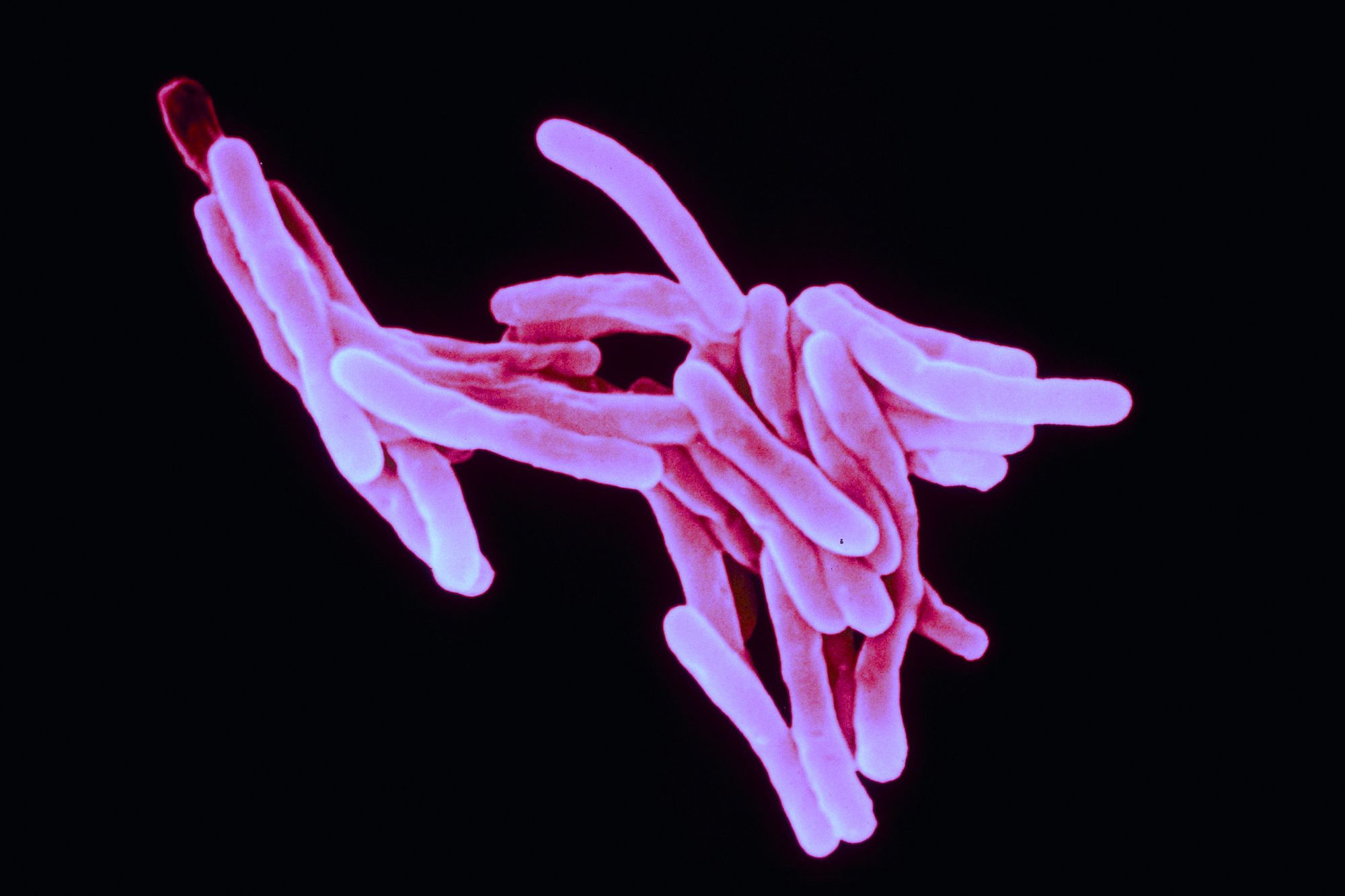By Sophie Holman-Jones, Third Year, Biomedical Sciences
Tuberculosis is a global public health emergency and a top priority for bioscience researchers. This World Tuberculosis Day, we celebrate the efforts of scientists from Bristol University who are part of the worldwide endeavour to eradicate this deadly disease.
Tuberculosis (TB) is a highly contagious infection caused by two types of mycobacteria: Mycobacterium tuberculosis (M. tuberculosis) and Mycobacterium bovis (M. bovis).
M. tuberculosis spreads via droplet infection, whereby coughs and sneezes of an infected individual release tiny droplets containing the bacteria into the air, before being inhaled into another person’s respiratory system infecting them.

Alternatively, M. bovis causes a form of TB known as ‘bovine TB’ which is zoonotic, meaning it can be propagated between animals and humans, mostly through ingestion of unpasteurised animal products or physical contact with open animal wounds. The majority of bovine TB cases in humans are contracted from cattle, although it can be spread by other animals such as elk and deer.
TB predominantly affects the pulmonary system, and can manifest itself as a variety of symptoms; the most common being a persistent cough which may bring up blood and phlegm, fever and weight loss. Not everyone who is infected by TB becomes ill immediately however; some suffer from a latent TB infection (LTBI). LTBI sufferers feel healthy, do not present with any symptoms and cannot spread the disease to others, but if their immune system becomes compromised by another infection later in their life the disease may flare up in an active form.
The disease can affect any individual at any age, but smoking, alcohol abuse and immunocompromising diseases make individuals more susceptible; for example, HIV patients are 18 times more likely to develop TB.
According to the World Health Organisation (WHO), ten million people globally became ill as a result of the disease in 2019, and of these, 1.4 million died.
This makes TB one of the top ten lead causes of death worldwide.
The disease is curable, as when diagnosed, individuals should be prescribed a six-month course of antibiotics. However, over-prescription of antibiotics in recent years has led to antibiotic resistance of many bacterial infections and unfortunately, this includes certain strains of TB, making it increasingly difficult to diagnose and treat.
In 2018, the United Nations pledged to reduce the incidence of TB cases by 80 per cent by 2030. Cases are gradually falling at the rate of two per cent per year, however in order to reach the 2030 target this is simply not fast enough. It is in the global interest to find novel ways to diagnose, treat and thus prevent the spread of this devastating condition.
24 March 2021 marked World Tuberculosis Day, which this year commemorates the 139th year since German microbiologist Dr Robert Koch discovered M. tuberculosis. The WHO’s theme for this year is ‘The Clock is Ticking’ to emphasise that time is running out to honour the UN’s commitments. World TB day shines a spotlight not only on what needs to be done, but on the ground-breaking and innovative strides currently being taken by researchers in the field.
Some pioneering projects are underway at the University of Bristol. Dr Ellen Brookes-Pollock (School of Veterinary Sciences) leads the ZooTB research project, an ongoing initiative which sets out to investigate the public health significance of bovine TB in the South West by estimating the prevalence of cases and associated risk factors.
In addition, Professors Jim Spencer (School of Cellular and Molecular Medicine) and Adrian Mulholland (School of Chemistry) have been working with collaborators from Thailand to investigate the effect of targeting an enzyme called Shikimate dehydrogenase (SDH), a key component of a biosynthetic pathway in M. tuberculosis known as the ‘shikimic acid pathway’. This pathway is essential to the mycobacterium but is not present in humans. Profs Spencer, Mulholland and colleagues have proposed three potential ways of disruption of this pathway by inhibiting SDH that could form the basis for a mechanism of action of a future anti-TB therapeutic.
Point-of-Care Tests may be solution to growing antibiotic resistance crisis
Long COVID- who gets it and how can we treat it?
Finally, Prof Paul Race (School of Biochemistry) is working with researchers from Kenya in the fight against antibiotic-resistant TB. Prof. Race said: ‘TB has developed resistance to existing drugs […] by accumulating mutations that eventually cause the drugs to lose their effectiveness’. By investigating novel and natural drug combinations which contain molecules that block common mechanisms through which TB evades destruction, the teams hope to slow the rate at which TB becomes antibiotic-resistant.
Should these research efforts prove fruitful, they may lay the foundations for the design of therapeutics which could target TB with specificity; reduce the incidence of antibiotic resistance in TB strains as well as provide a more comprehensive understanding of TB epidemiology, hence have exciting potential to advance the field of TB research.
Featured Image: Flickr/ NIAID
Learn more about World Tuberculosis Day here









